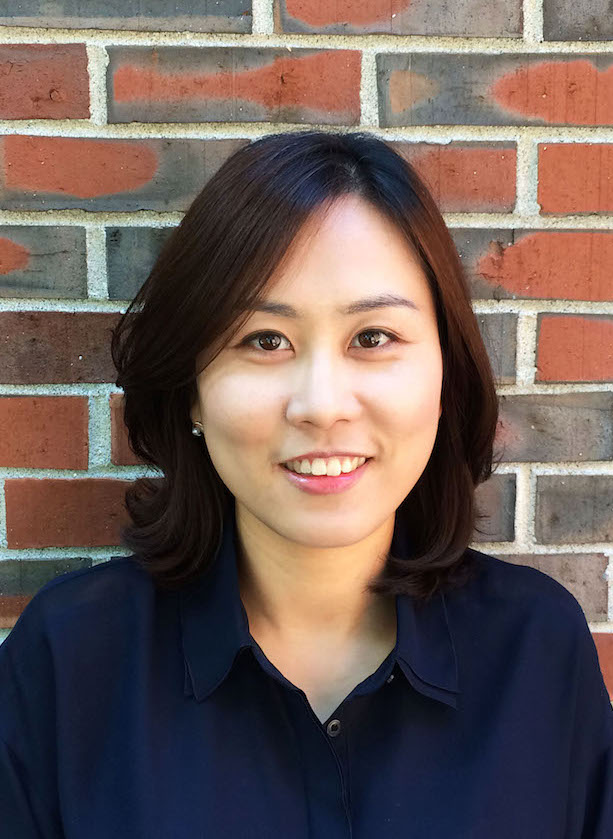Adjunct Professor

Park, Ji-young
- Social psychology
- cultural psychology
- affective science health psychology
- social & affective neuroscience
-
Education
University of Michigan, Psychology (PhD)
-
Location
N4, 1414
- Phone
-
Laboratory
Culture & Affective Neuroscience Laboratory (CANLab)
Biosketch
- Dr. Jiyoung Park is an Associate Professor in the School of Digital Humanities and Computational Social Sciences at KAIST and Director of the Culture and Affective Neuroscience Lab (CANLab). Dr. Park is also affiliated with the Department of Brain & Cognitive Sciences at KAIST. Dr. Park received her B.A. and M.A. in Psychology from Seoul National University, Korea and her Ph.D. in Social Psychology from the University of Michigan, Ann Arbor. After completing a postdoctoral training at the University of Michigan in 2013, she then received Psychology and Medicine postdoctoral training at the University of California, San Francisco, funded by National Institute of Health (NIH). Prior to joining KAIST in 2023, Dr. Park was an Assistant Professor at the University of Massachusetts, Amherst from 2015 to 2017 and an Assistant Professor at the University of Texas at Dallas from 2017 to 2013. Her overarching research goal is to examine the maladaptiveness of negative emotional states or their potential adaptiveness by including socio-cultural contexts as a critical moderator that determines the meaning and function of each emotion. In this vein, Dr. Park has pursued three complementary lines of research to examine how socio-cultural conditions, defined by various macro-level variables, including national culture, social status, gender, and race, modulate the (mal-)adaptiveness of various negative emotional states in three domains: (a) biological health, (b) performance motivation, and (c) social functioning. With members of CANLab, Dr. Park examines these issues using a social & affective neuroscience approach by utilizing diverse methods from neuroscience, psychophysiology, and experimental social psychology to understand the neurobiological mechanisms and consequences of emotions within broader social contexts.
Key Papers
- Zhu, Y., Martin, A., Kane, H., & Park, J. (2023). Is daily emotion suppression associated with poor sleep? The moderating role of culture. Emotion. https://doi.org/10.1037/emo0001206
- Park, J., Kitayama, S., & Miyamoto, Y. (2023). When high subjective social status becomes a burden: A Japan-U.S. comparison of biological health markers. Personality and Social Psychology Bulletin. https://journals.sagepub.com/doi/10.1177/01461672231162747
- Park, J., Carrillo, B., & Mendes, W. B. (2021). Is vicarious stress functionally adaptive? Perspective-taking modulates the effects of vicarious stress on future firsthand stress. Emotion, 21(6), 1131-1143. https://doi.org/10.1037/emo0000963
- Wu, D. J., Park, J., & Dasgupta, N. (2020). The influence of male faces on stereotype activation among women in STEM: An ERP investigation. Biological Psychology, 156. 107948. https://doi.org/10.1016/j.biopsycho.2020.107948
- Chen, X., Geagea, A., Park, J., & Kwak, Y. (2020). Cultural modulation of early attentional responses to positive self-information: An ERP investigation of self-enhancement. International Journal of Psychophysiology, 158, 34-44. https://doi.org/10.1016/j.ijpsycho.2020.09.008
- Park, J., Kitayama, S., Miyamoto, Y., & Coe, C. L. (2020). Feeling bad is not always unhealthy: Culture moderates the link between negative affect and diurnal cortisol profiles. Emotion, 20(5), 721- 733. doi: 10.1037/emo0000605
Courses
- Introduction to Cultural Psychology
- Experimental Methods for Social Sciences
